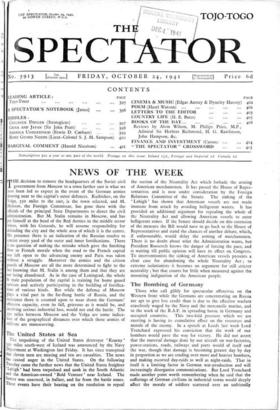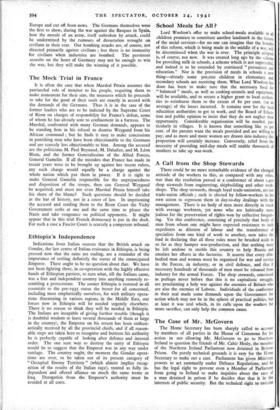The Bombing of Germany
Those who call glibly for spectacular offensives on the Western front while the Germans are concentrating on Russia are apt to give less credit than is due to the effective warfare ceaselessly waged by the Navy and the mercantile marine, and to the work of the R.A.F. in spreading havoc in Germany and occupied countries. This two-fold pressure which we are exerting is having its cumulative effect on the resources and morale of the enemy. In a speech at Leeds last week Lord Trenchard expressed his conviction that the work of our bombers would pave the way for victory. He did not assert that the material damage done by our aircraft on war-factories, power-stations, roads, railways and ports would of itself end the war, though that damage is becoming greater day by day in proportion as we are sending over more and heavier bombers, and making escorted day-raids as well as night-raids. That in itself is a limiting factor in German war-production and will increasingly disorganise communications. But Lord Trenchard made another point worth remembering when he said that the sufferings of ,German civilians in industrial towns would deeply affect the morale of soldiers scattered over an unfriendly Europe and cut off from news. The Germans themselves were the first to show, during the war against the Basques in Spain, how the morale of an army, itself unbroken by attack, could be undermined by the rumours of devastation wrought on civilians in their rear. Our bombing attacks are, of course, not directed primarily against civilians ; but there is no immunity for civilians when industries are bombed. The persistent assaults on the heart of Germany may not be enough to win the war, but they will make the winning of it possible.



























